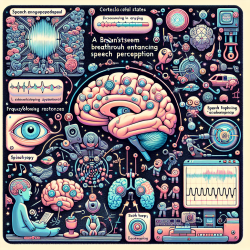In recent years, there has been a growing emphasis on the inclusion of students with Autism Spectrum Disorders (ASD) in mainstream educational settings. A study titled "Autism Spectrum Disorders and inclusion attitudes in the Italian school environments: teachers’ knowledge, attitudes, perceptions and their necessity to consult a healthcare multidisciplinary team" provides valuable insights that can help practitioners improve their skills and encourage further research in this critical area.
According to the study, conducted from March to August 2021, involving 235 teachers, significant gaps exist in teachers' knowledge and attitudes towards ASD. The study highlights the importance of having healthcare professionals, such as school nurses, psychologists, and speech therapists, in the school environment to support teachers and promote better outcomes for students with ASD.
Key Findings
- Knowledge Gaps: Many teachers demonstrated a lack of understanding of ASD, particularly regarding diagnostic criteria, the effectiveness of interventions, and the role of genetic factors. For instance, only 40.9% of teachers correctly identified that the diagnostic criteria for Asperger’s Syndrome are the same as those for High Functioning Autism.
- Importance of Early Intervention: The study underscores the benefits of early intervention for children with ASD. Early diagnosis and timely intervention can significantly improve language development and intellectual performance, thereby enhancing the overall quality of life for these students.
- Role of Healthcare Professionals: The presence of healthcare professionals in schools is crucial for the early recognition of ASD symptoms and the implementation of effective interventions. Teachers reported that the inclusion of professionals like psychologists, speech therapists, and school nurses could be beneficial in supporting students with ASD.
Practical Recommendations
To improve outcomes for students with ASD, practitioners can implement the following strategies based on the study's findings:
- Enhanced Training: Provide comprehensive training programs for teachers to improve their knowledge and understanding of ASD. This training should cover diagnostic criteria, intervention strategies, and the importance of early intervention.
- Multidisciplinary Teams: Advocate for the inclusion of multidisciplinary teams in schools, comprising psychologists, speech therapists, occupational therapists, and school nurses. These professionals can offer valuable support to both teachers and students.
- Individualized Education Plans (IEPs): Develop and implement IEPs tailored to the specific needs of each student with ASD. These plans should be created in collaboration with healthcare professionals and regularly reviewed to ensure they are meeting the student's needs.
- Parental Involvement: Encourage active participation of parents in the educational process. Parents can provide valuable insights into their child's behavior and needs, which can inform the development of effective intervention strategies.
By addressing these key areas, practitioners can create a more inclusive and supportive environment for students with ASD, ultimately leading to better educational and social outcomes.
To read the original research paper, please follow this link: Autism Spectrum Disorders and inclusion attitudes in the Italian school environments: teachers’ knowledge, attitudes, perceptions and their necessity to consult a healthcare multidisciplinary team.










